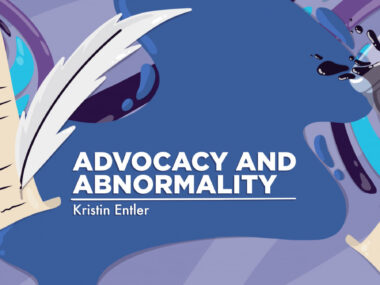Inflammation in pancreas among risk factors for this cancer with CF
Diabetes, high cholesterol also common in patients with pancreatic cancer
Written by |

A history of pancreatic inflammation, diabetes, high blood pressure, and high cholesterol may increase the risk of pancreatic cancer in people with cystic fibrosis (CF), according to a large database report.
These patients also had a higher prevalence of known risk factors for pancreatic cancer, including smoking, alcohol consumption, and obesity.
“Our findings may be used as a scaffold to guide the development of efficient risk prediction models to identify high-risk patients with CF who may benefit from [pancreatic cancer] screening,” the researchers wrote.
Their brief report, “Characteristics and Outcomes of Patients with Cystic Fibrosis and Pancreatic Cancer: A Large Database Analysis,” was published in the Journal of Gastrointestinal Cancer.
Pancreatic cancer can be difficult to diagnose at early stages
Cystic fibrosis is caused by mutations in the CFTR gene that lead to the production and accumulation of unusually thick and sticky mucus. This thick mucus damages various organs, including the lungs, pancreas, and digestive tract, causing a range of disease symptoms.
Advancements in diagnosing CF and the development of more effective therapies, particularly CFTR modulators — therapies that address the underlying cause of CF — have significantly slowed disease progression and increased patients’ life expectancy.
Living longer, however, also raises the risk of age-related diseases. An increasing incidence, or reported new cases, of cancers have been noted in people with CF, particularly those whose disease affects the gastrointestinal tract. However, “reports describing characteristics and outcomes of patients with CF and pancreatic cancer (PC) are limited to small case series only,” the researchers wrote.
Pancreatic cancer starts in the pancreas, which produces enzymes that help to digest food and the insulin that controls blood sugar levels. This type of cancer is usually difficult to diagnose early, and it is associated with a poor prognosis.
A research team in the U.S. analyzed the characteristics and outcomes of CF patients who also had pancreatic cancer. Patients were identified via TriNetX, a database covering approximately 74 million people across 54 healthcare organizations nationwide, between July 2016 and October 2023.
A total of 41,655 individuals with CF and 158,278 with pancreatic cancer were identified. Among CF patients, 198 were diagnosed with pancreatic cancer (0.48%), and 180 patients were included in the final analysis.
“The estimated incidence rate of [pancreatic cancer] in patients with CF in our analysis is higher than the reported incidence rate of [pancreatic cancer] among the general population in the U.S.,” the researchers noted.
Participants had a mean age of 59.3, and a majority were female (51.7%) and identified as white (71.7%). Another 10% were African American and 5.6% were Asian. CF patients with pancreatic cancer then were matched by age, sex, and race to CF patients without this cancer, and also compared with pancreatic cancer patients who did not have CF.
Coexisting conditions, or comorbidities, were more common in people with both CF and pancreatic cancer than in those with CF alone. Specifically, these patients had a significantly higher prevalence of type 2 diabetes (42.8% vs. 5.6%), high blood pressure or hypertension (58.3% vs. 5.6%), and high blood-fat levels or cholesterol (40% vs. 5.6%). They had a lower prevalence of bronchiectasis, an abnormal thickening of the airways walls (15.8% vs. 28.7%).
CF patients with pancreatic cancer tended to have higher rates of pancreatitis
CF patients with pancreatic cancer also had a history of chronic (22.8%) or acute (13.9%) pancreatic inflammation, or pancreatitis, a condition not reported among people in this report with CF alone.
“The proposed mechanism for increased risk of [pancreatic cancer] among patients with CF is pancreatitis, however prior studies evaluating the risk of patients with CFTR gene mutation carriers also allude to additional mechanisms such as lack of tumor suppressor function of CFTR,” the researchers wrote.
A significantly higher prevalence of traditional risk factors for pancreatic cancer was evident among CF patients with this cancer than in those with pancreatic cancer alone. This included tobacco smoking (9% vs. 2%), excessive alcohol use (12% vs. 3%), obesity or being overweight (24% vs. 9%), acute pancreatitis (18% vs. 5%) and chronic pancreatitis (28% vs. 6%), and type 2 diabetes (50% vs. 17%).
“Diabetes is a known complication of CF and is also known to be associated with a significantly increased risk of [pancreatic cancer]. Metabolic syndrome is also known to be an independent driver in increasing risk for [this cancer] in the general population,” the researchers wrote. Metabolic syndrome includes conditions like high blood pressure, and high blood sugar and fat levels.
In this study, a CF diagnosis did not affect survival among patients with pancreatic cancer.







